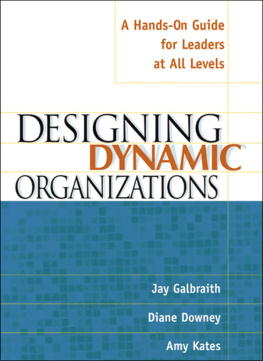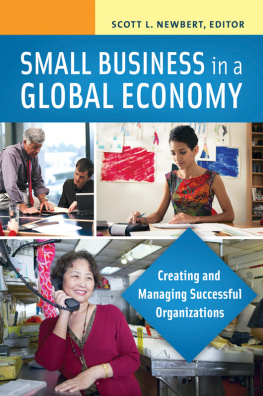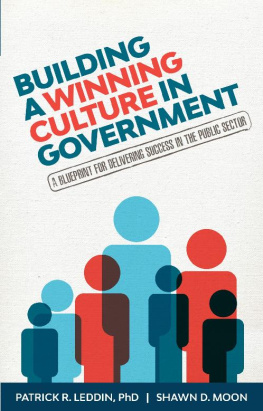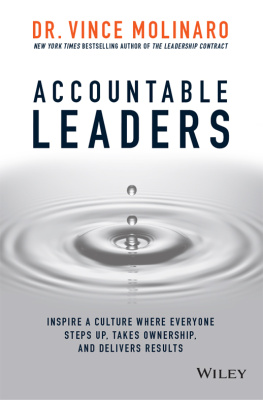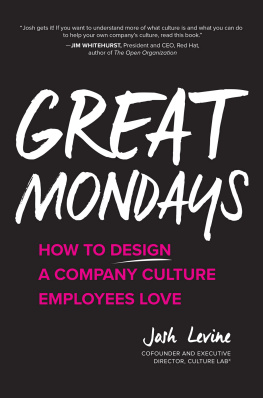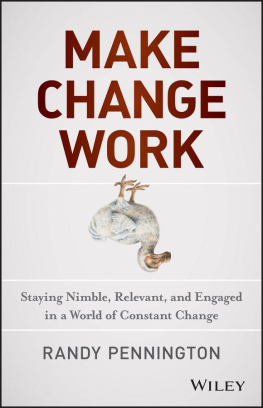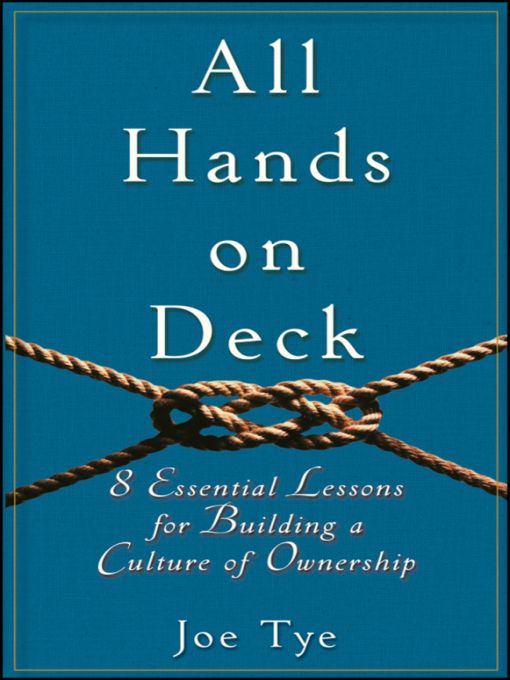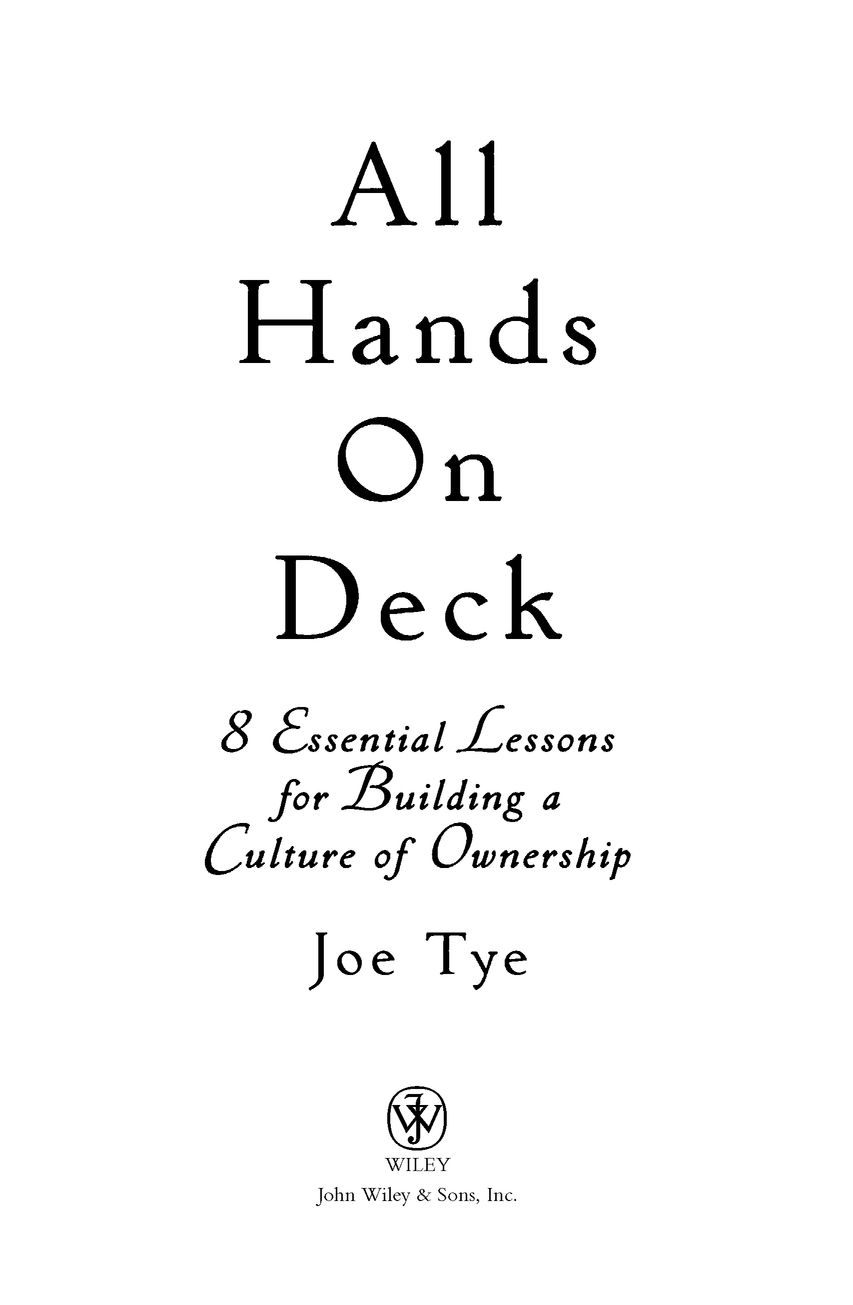Table of Contents
Praise forAll Hands on Deck
Joe Tye wants to change the world. In this far-ranging fable, he might just be able to persuade you to join him.
Seth Godin, Author of Linchpin
In All Hands on Deck, Joe Tye has helped us understand the connection between what we do as leaders and how we drive organizational change. Through compelling story telling and engaging insights, Joe takes us in, through and around the concept of ownership. My own work with senior leaders around the world resonates with Joes advice: creating a culture of ownership is the best way to achieving personal, organizational and societal outcomes that improve lives!
David Altman, Executive Vice President,
Research, Innovation, and Product Development,
Center for Creative Leadership
After I read the first few pages I was hooked. If you want to build a great culture and a winning team, read this book and let Joe Tye show you how to get all hands on deck!
Jon Gordon, Author of The Energy Bus and Soup
People dont do anything worthwhile until they are inspired, which is perhaps why Martin Luther King didnt stand on the steps of the Lincoln Memorial and say, I have a strategic plan. Inspire them, engage them, invite them to take ownership, and your employees will move mountains. Once again Joe Tye hits a home run!
Matthew Kelly, New York Times Bestselling author of
The Dream Manager and The Rhythm of Life
Joe Tye has hoisted the sails high with this captivating book. The necessity for, and returns of, building a culture of ownership are a relatively common business mantra; Joe makes a culture of ownership a reality, rather than just a slogan.
Kevin A. Sheridan, CEO, HR Solutions, Inc.
All Hands on Deck guides us to the kind of business and organization that has always been the secret to long run success. Someone once said that non-fiction gives us knowledge but fiction gives wisdom. This book is even more powerful than either because it tells a story that is laced with real wisdom from giants of business. And although this is an easy read it gives us all the tools to move to a culture of ownership that can withstand and prosper in the most difficult situations. Joe Tye draws on the best business literature and his own substantial experience to show how work in groups can be generative of new possibilities in work and life. Ive already gone back to this book several times and am using it in my own work. Start your new journey with this book and keep it at your side.
Michael L. Ray, Stanford Graduate School of Business,
Author, Creativity in Business, The Highest Goal,
and co-editor, The New Paradigm in Business
In All Hands On Deck, Joe Tye takes us on an Alice in Wonder-land journey to observe some of historys most successful leaders in action. With this dramatic technique, Tye reveals again the too-often-forgotten principles of leadership, how they are made real in the workplace, and the results they produce. This is a teaching tale that also entertains. I highly recommend this book to those who want to be leaders and to leaders who want a refresher course.
James A. Autry, Author, The Servant Leader
Joe Tye teaches us through great business leaders of the past, the key steps to creating a culture of ownership. Great lessons, well told and easy to read. Get your hands on a copy, read it, and put the lessons to work. Whether you are a CEO or lead a team of two, each lesson is relevant, applicable, and yours for the taking. Thanks for an inspiring and important book, Joe!
Kevin Eikenberry, Author of Remarkable Leadership:
Unleashing Your Leadership Potential One Skill at a Time
For Sally, who puts the wind in my sails on the open seas and keeps me anchored in the storms.
When you look at your people, do you see costs to be reduced? Do you see recalcitrant employees prone to opportunism, shirking, and free riding who cant be trusted and who need to be closely controlled through monitoring, rewards, and sanctions? Do you see people performing activities that can and should be contracted out to save on labor costs? Or, when you look at your people, do you see intelligent, motivated, trustworthy individualsthe most critical and valuable strategic assets your organization can have? When you look at your people, do you see them as the fundamental resources on which your success rests and the primary means of differentiating yourself from the competition? Perhaps even more importantly, would someone observing how your organization manages its people recognize your point of view in what you do as opposed to what you talk about doing?
Jeffrey Pfeffer, The Human Equation: Building Profits by
Putting People First
(Boston, MA: Harvard Business School Press, 1998, p. 292)
Foreword
One day in 1999, as I was giving a presentation for a group of independent insurance agents who represent Auto-Owners Insurance Company, we kept being interrupted by this awful racket from the room next door. At the next break, I went to check out this source of annoyance. The speaker at the front of the room was leading two hundred or so seemingly respectable businesspeople as they were jumping up and down and roaring like hungry lions. I listened to the speaker for a while then, rather than asking him to hold down the noise (which had been my original intention), I invited him to visit Auto-Owners headquarters for a retreat with our senior leadership team. That was the beginning of a long relationship between Auto-Owners Insurance and Values Coach, and a lasting friendship between Joe Tye and me.
Im pleased to write a foreword for this book for two reasons beyond my friendship with the author. First, while the story itself is fictional, the underlying principles are fundamental to building an enduring organization. At Auto-Owners, a culture of ownership is woven right into our DNA, and our practices reflect the lessons described in this book. We take our central purpose and our 10 core values very seriously. We expect our associates to know what those 10 values are and to buy into the expectations those values create. Over the years, Joe has randomly stopped hundreds of our associates and asked them to recite our values. Almost everyone is able to do it.
We are very proud of the fact that in our nearly one hundred years of operationthrough two world wars, the Great Depression and multiple recessions, and the great restructuring frenzyAuto-Owners has never had a layoff. We almost always promote from within, and every one of our senior officers has devoted his or her career to the company. Our culture of ownership is reflected in the fact that our employee turnover is substantially less than the industry average, while our productivity per employee is substantially higher than the industry average. Its also reflected in the fact that for the past two years, J.D. Power has ranked Auto-Owners as number one for customer satisfaction in automobile claims.
As is the case with the companies described in this book, our commitment to fostering that spirit of ownership extends beyond the boundaries of our organization. We consider the independent insurance agents who sell and service our products to be true partners in our business, and we have maintained a steadfast loyalty to the agency system for close to a century. In this, our philosophy is very similar to that of Ray Kroc toward his suppliers and franchisees or of Mary Kay Ash toward her independent beauty consultants. When I read about the family picnics hosted by Bill Hewlett and Dave Packard, I was immediately reminded of Auto-Owners family nights at the stadium where the Lansing Lugnuts play baseball.


